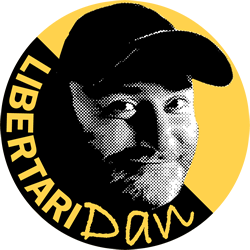To Speak? Or Not To Speak?

What value free speech? What value free thought? We all know people whose opinions we don’t like. For some it’s Corbyn, for some Boris, for others their neighbour, colleague, or person from a different part of town, or with a different religion, or no religion, or a different culture, football team or politics. Some people think that if they don’t like what someone else thinks, or says, that saying it should be a crime – ‘they shouldn’t be allowed’.
Of course, some things people say deliberately incite violence – that’s already a crime. But other things? Should the state be banning unpopular opinions, or even popular opinions some don’t like? And should they be pressuring private organisations to ban them? Western governments have been attacking free speech in this way for some time, trying to determine what people can be allowed to say, or what opinions can be permitted in the public square. One of the most insidious attacks comes in the form of the ‘hate speech’ category.
Far away from the grassroots, wheels are in motion to intervene online via the ‘hate speech’ category. A recent example is Macron’s attempt to get all G7 countries to adopt a ‘charter against online hate speech’, which by any other name is censorship (https://raheemkassam.com/2019/08/26/1a-trump-refuses-to-sign-macrons-g7-hate-speech-charter/). Trump notably didn’t sign-up to it. Why? The US constitution doesn’t permit him to, even if he wanted to, because their first amendment protects free speech.
By contrast France, the UK and other G7 countries apparently have no such constitutional protection for this basic human right. But wait, article 11 of the Charter of Fundamental Rights of the European Union states that “everyone has the right to freedom of expression. This right shall include freedom to hold opinions and to receive and impart information and ideas without interference by public authority and regardless of frontiers.” Are they just ignoring it? Macron is reported to be pressuring major online platforms to sign – is that not interference? Or is he encouraging major online platforms to sign-up hoping private businesses will provide censorship where it’s dubious for the state to do so?
Even so, various online platforms have opted to sign-up to the charter including Google, Facebook and Snapchat (something they can voluntarily choose to do, but something users of the platform should be aware of).
I’m in favour of free speech and I’m against the category of ‘hate speech’. It’s not because there are people I want to be unkind about, it’s because free speech is a human right and because the state getting involved in censoring speech is a serious backward step towards authoritarianism. A crime is a crime, and speech is speech. If someone commits a crime deal with that appropriately. But if someone says something you disagree with, first, be glad that you know what they think, then challenge their ideas which you disagree with, prove them wrong in the public square through free exchange of ideas and open debate. If you have to use government to silence people you disagree with one has to ask if your own ideas simply can’t stand on their own.
But what do you think? Should distant groups like the G7 be pushing for online censorship of free speech? Or should free speech remain and bad ideas be proven bad by open debate?
Source: 1A: Trump Refuses to Sign Macron’s G7 ‘Hate Speech’ Charter
